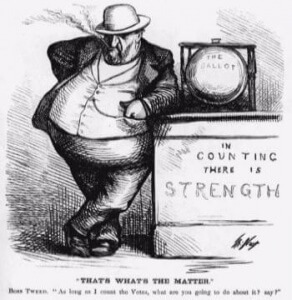
Caesar was killed on this spot.
Today is the Ides of March, which marks the date in 44 B.C. that Julius Caesar was assassinated.
To learn why it was called the Ides of March, we need to take a look at the Roman calendar in use 2,060 years ago. Days of the year weren’t not numbered sequentially. Instead, each month had three division days: Kalends, Nones and Ides.
Kalends always fell on the first day of the month. The Nones fell on the fifth, except in months that had fewer than 31 days. In March, May, July and October, the Nones fell on the seventh. The Ides occurred eight days after the Nones. Easy, right?
Not so fast. Some histories report that the Ides were considered a time to pay debts and settle accounts. It also appears that the Ides stood not just for one day but the following month. This is important to the understanding the events leading up to the assassination of Julius Caesar.
William Shakespeare studied the writings of Plutarch when crafting Julius Caesar, so even though he used poetic license when penning the famous line, “Beware the Ides of March,” he based the scene surrounding it upon a real occurrence. To wit: there was a soothsayer named Spurinna, who warned Caesar of his rapidly-approaching fate.
Spurinna was a haruspex, one who discovered and interpreted omens by inspecting the entrails and organs of animal sacrifices. He hailed from Etruria, known for its training in divination. Etruscans were accorded high social status in Rome. Spurinna had access to prominent citizens and was undoubtedly privy to gossip and rumors, which could only help him in his occupation.
Caesar was not well-liked. He had brazenly taken a foreigner (Cleopatra) as his mistress. He had declared himself dictator perpetuo, dictator in perpetuity, on February 14th, spurring fears he would declare himself king and do away with the Senate altogether.
On February 15th, Caesar consulted Spurinna. A bull was sacrificed and its innards interpreted. Spurinna announced a bad omen: the bull had no heart. It’s a testament to belief that no one demanded to inspect the body or asked how the animal survived to adulthood, until its sacrifice, without a heart.
Spurinna told Caesar to beware the next 30 days, not just March 15th. Was it sound advice by way of divination, an educated guess or something more? It was common knowledge that Caesar was scheduled to leave Rome on March 18th to lead his army on a military campaign that would last for years. The assassins had to strike before then.
According to historian Barry Strauss, author of The Death of Caesar: The Story of History’s Most Famous Assassination, Caesar took the warning seriously. He had no intention of attending the Senate meeting on March 15th. His wife Calpurnia awoke that morning from a nightmare that he’d been murdered, which strengthened his resolve to stay home.
He almost made it but succumbed to peer pressure when his friend Decimus, whom you’ve probably never heard of, came to his home and goaded him into attending. He told Caesar the Senate would brand him a tyrant, that everyone would laugh at him and think him weak and feeble-minded for allowing himself to be cowed by a woman’s dream and a fool’s omen.
The ploy worked. Decimus persuaded his friend to walk into the arms of his killers. Caesar never cried out in anguish, “Et tu, Brute?” The phrase has become shorthand for the experience of being stabbed in the back–hopefully metaphorically–by someone close. But Caesar and Brutus were never friends.
He must have been shocked to see Decimus stabbing him but didn’t call out his name, either. He was too busy trying to fight back and escape. Of course, he had no chance against the men surrounding him. Many of the 23 wounds occurred after he was dead; they took turns sticking him so they could all claim a role in the assassination.
Even in death, Caesar had a surprise in store, In his will, Caesar bequeathed a large cash payment to every citizen and soldier. He posthumously adopted Octavian as his heir and left him three-quarters of his private fortune to help him purchase the love of the populace and the loyalty of the military.
After years of civil war, Octavian became sole ruler of the Roman Empire. The fight for a new republic, which had driven men to slay their leader, was lost.
It seems all Romans would have done well to beware the Ides of March.





